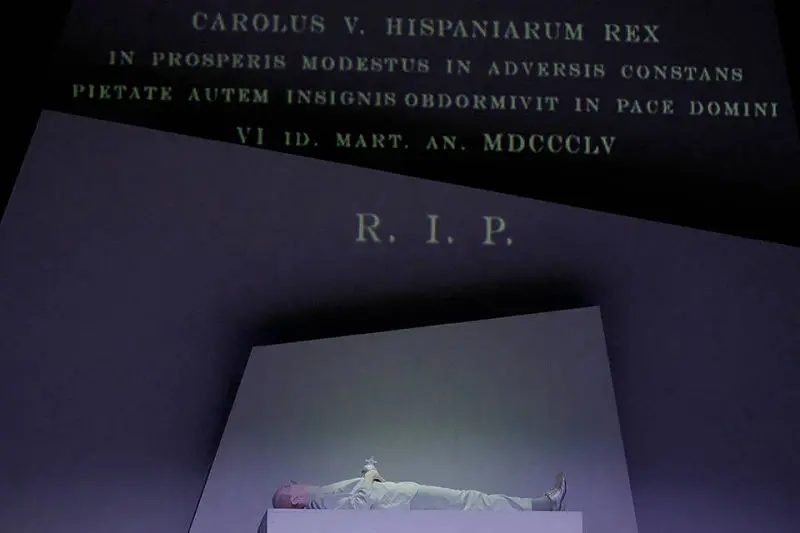
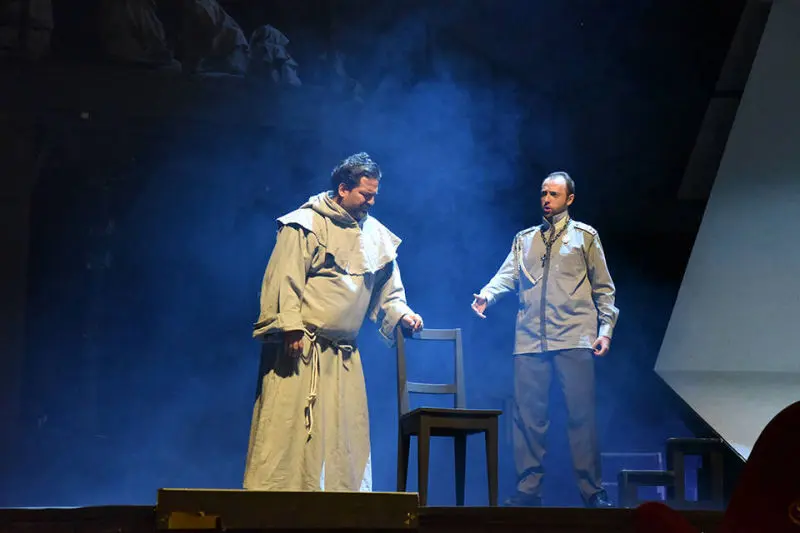
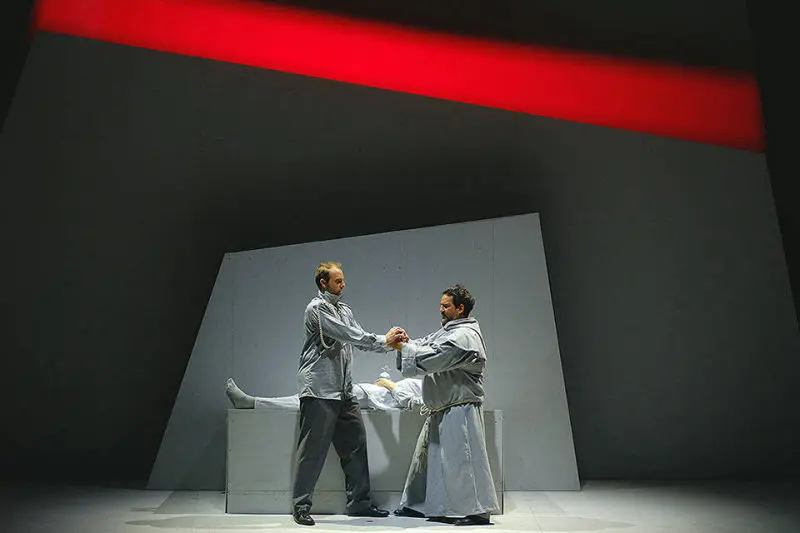
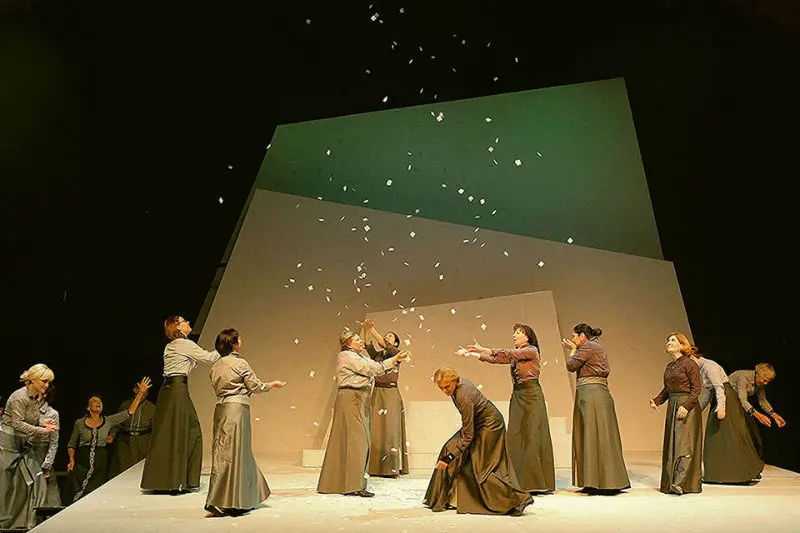
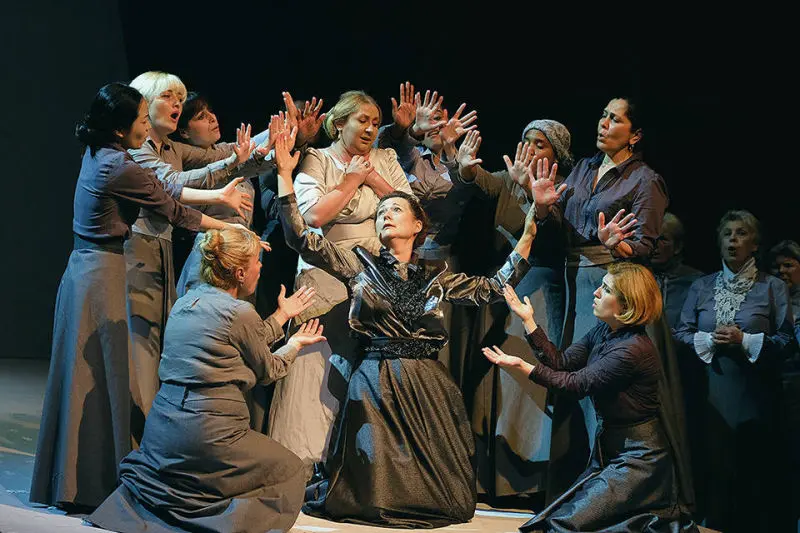
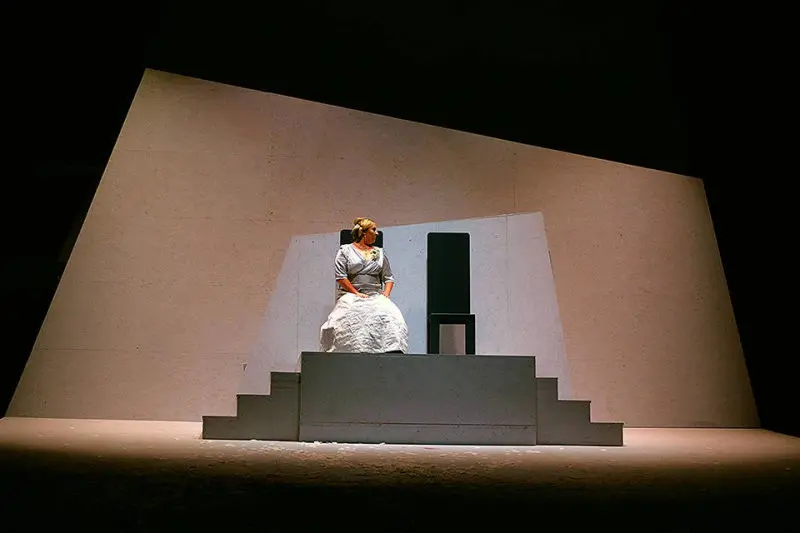
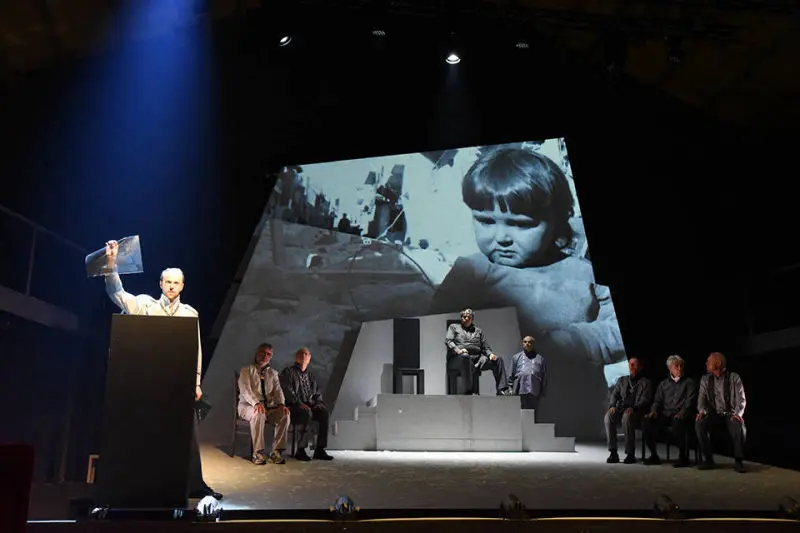
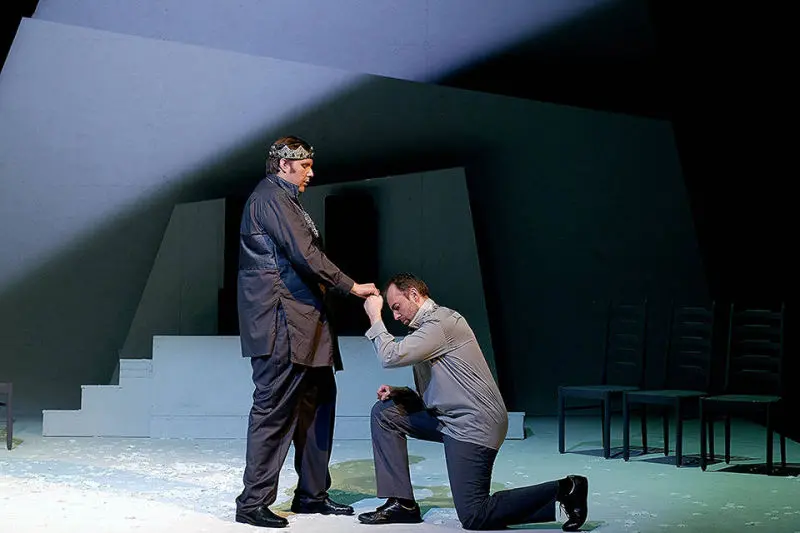
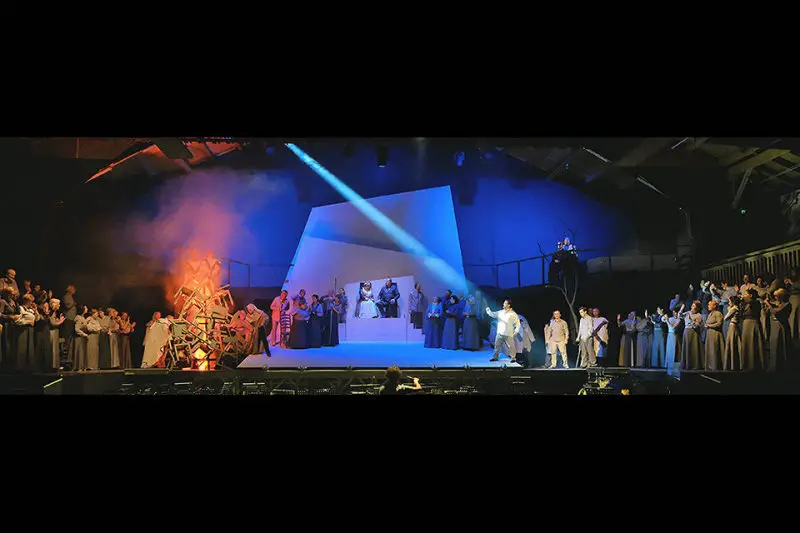
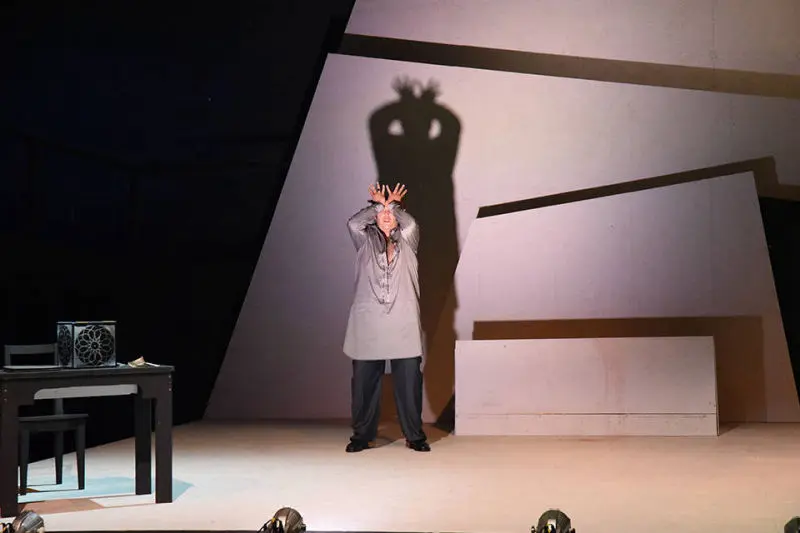
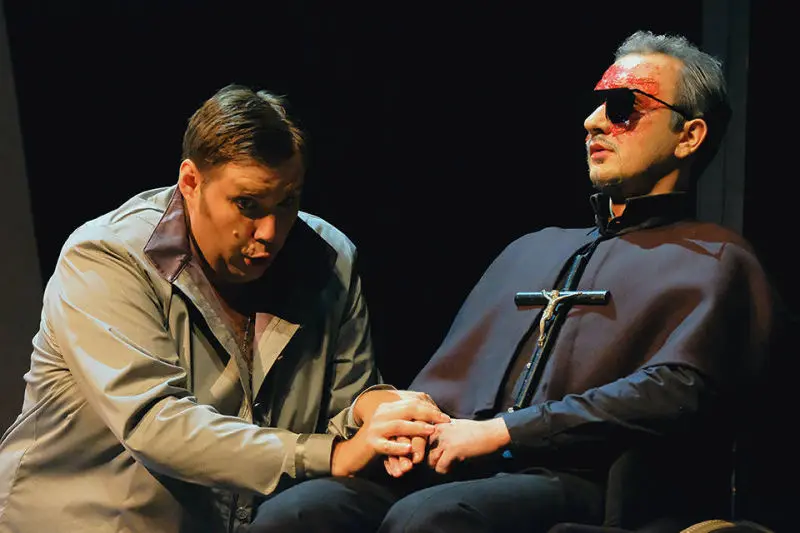
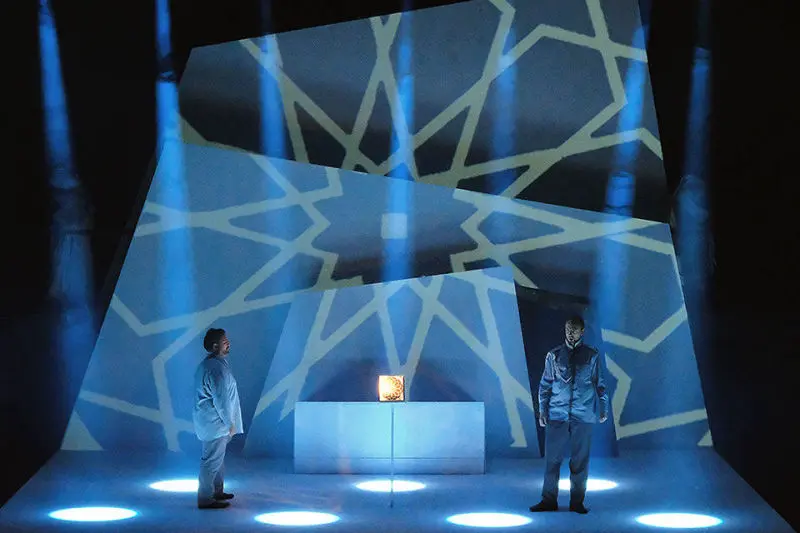
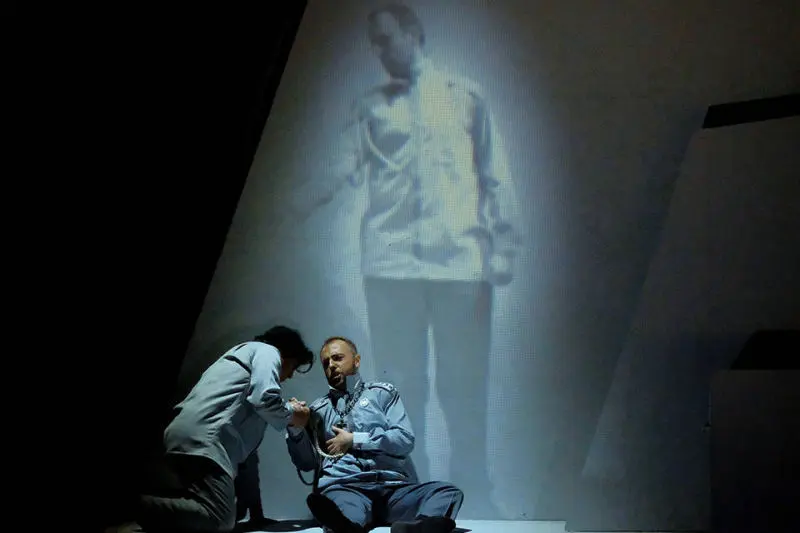
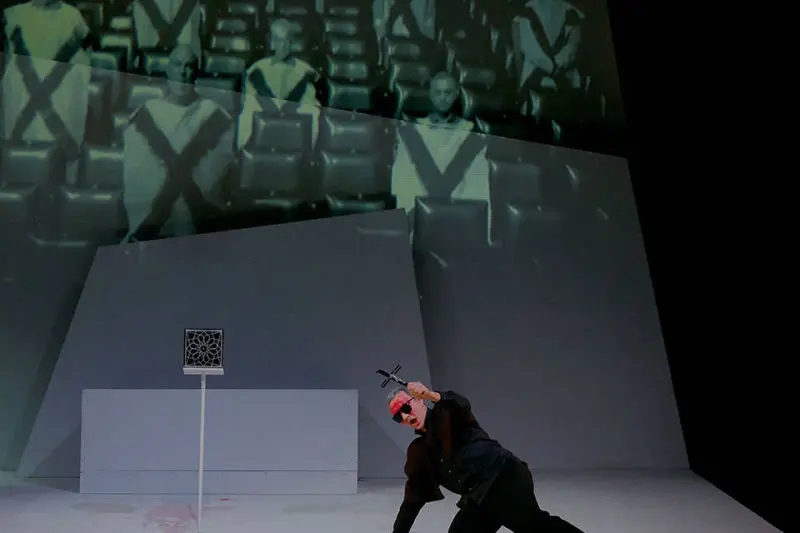
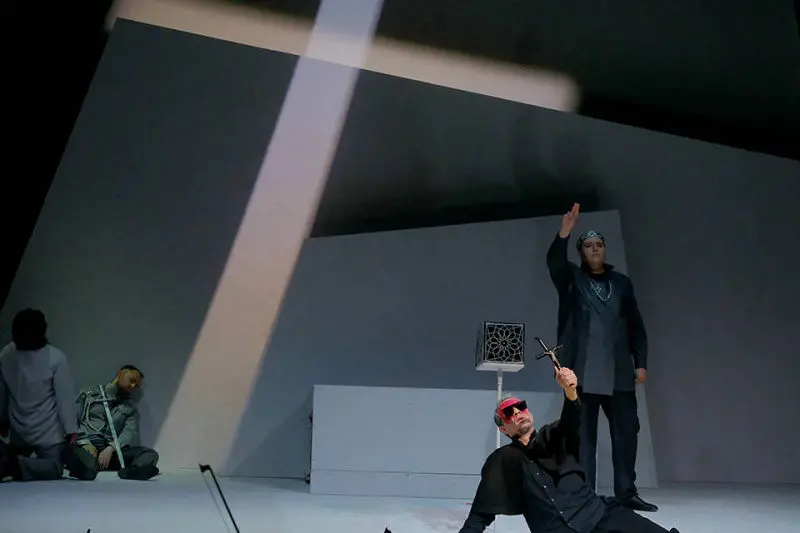
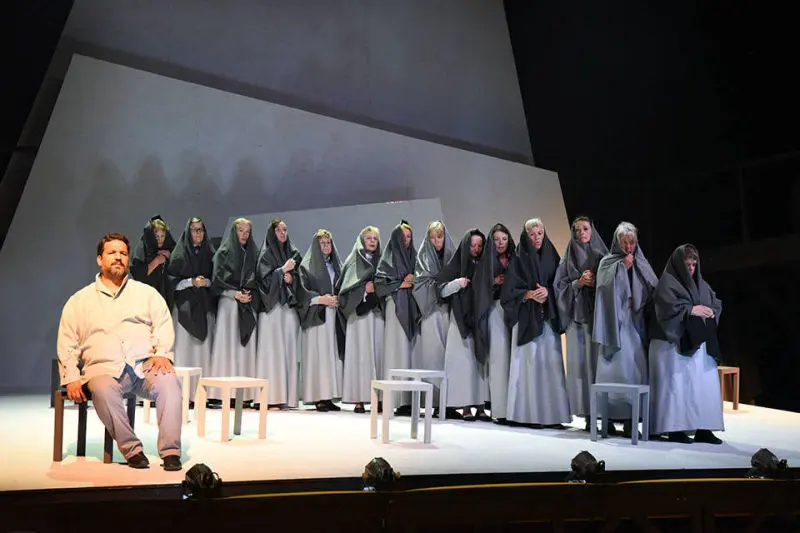
| opera |
Stage direction by Stefano Simone Pintor
"The stage director Stefano Simone Pintor knows the house from his successful production "I vespri siciliani" of the previous year and he proves once again, with a cleverly balanced "Don Carlo", that he has a good talent for Verdi. The Italian knows how to deal with the particularity of this stage in a smart way and he knows how to conjure impressive pictures without great stage technology. Which by no means only refers to the grand tableaux of the autodafé scene fervently offered by the Immling choir, but above all the intimate second and third acts that dominate in this four-act Italian version of Verdi's and Schiller's drama. The abstract unitary space, designed by Pintor himself together with Walter Ulrich, let the audience clearly focus on the events and it puts the performers in the spotlight. Starting with the friendship duet, in which Carlo and Posa, using the edges of the imperial orb cross as a knife, cut each other's palms to swear blood brotherhood, up to the beautiful shadow plays, which link the whole evening like a red thread."
"The difficulties which such an opera presents are brilliantly passed. This is not least due to the clear focus of the staging: the story of the Spanish heir to the throne Don Carlo who becomes the enemy of his father, King Filippo II, out of his dubious love for his stepmother Elisabetta, gets caught up in the political fight between power and reason, in the question of what political responsibility means. Verdi's grand opéra thus becomes the tragic struggle of the individual with the abysses of power. Nowhere is this more evident than in the meeting between Filippo II (Oleksandr Pushniak) and the Grand Inquisitor (Gelu Dobrea) in the third act. While the senile churchman, in his inexorable belief in power, even rises from his wheelchair, the powerful figure of the bass Oleksandr Pushniak collapses. It is one of the strongest images of the extremely ambitious staging of the director Stefano Simone Pintor, which creates both reduced and catchy scenes. This is also due to the extremely successful stage design. It consists of a single gray, iceberg-like projecting surface protruding from the stage. The struggle between power and reason can unfold in ever new variations of light and shadow, supported by a clever color concept."
"Pintor's clearly structured staging is full of symbolism. The ghost of the deceased emperor Karl V, father of Filippo II, and his statement "The reason of State must not oppose the state of Reason" hover over the entire drama. The drama begins and ends at its grave. The set design (Stefano Simone Pintor and Walter Ulrich) is a reflection of political, personal and ecclesiastical tyranny - a labyrinth of souls. The singer and choir move in a four-level "geometrical structure" that fills the entire stage, amplified by means of light and shadow, colored lighting and video design (Arndt Sellentin and Maximilian Ulrich). The costume design (Kerstin Rossband) has been kept in simple shades of gray: the focus on the essentials remains unrestricted. The mass scenes fit in well-elaborated movement choreography, drawing powerful images of a gray mass of people or monks, who always give the scenes a dramatic impres- sion at the right moment and in appropriate rhythm. In addition, Pintor plays artfully with sophisticated shadow, both in small and oversized projection. At the gate of the Inquisition, heretics burn down on a pyre made out of the same chairs they previously used, as a metaphor to the individuals who have lost their place in the society and have fallen prey to the Church's power. An impressive comparison that triggered goosebumps in the spectators."
Free AI Website Builder